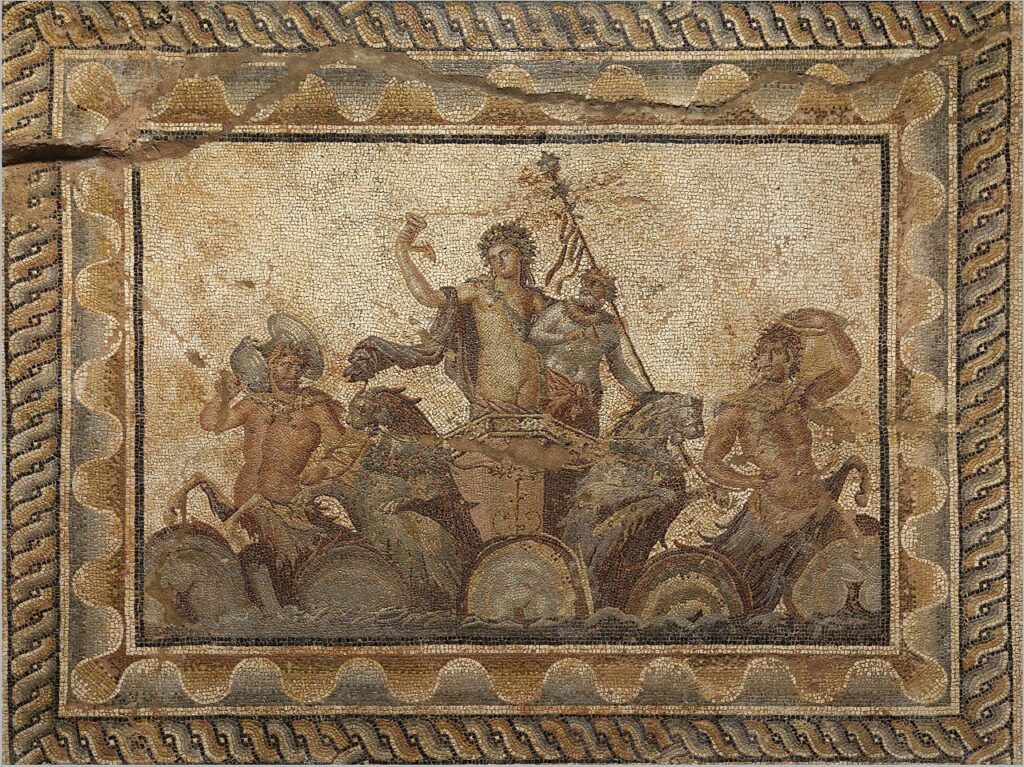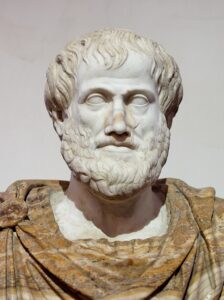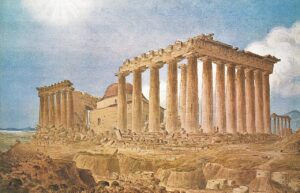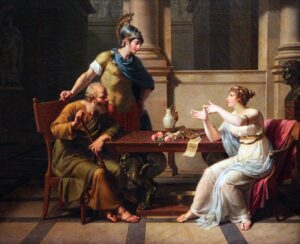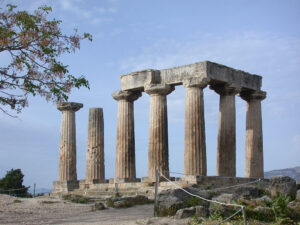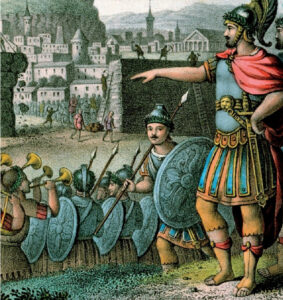Dionysus was one of the twelve Olympian gods of ancient Greek mythology. He was the god of wine, fertility, and drama, and was known for his association with revelry, madness, and ecstasy. Dionysus was considered one of the most important gods in ancient Greece, and was worshipped in many different cities throughout the country. In this article, we’ll learn about his history, mythology and significance to ancient Greek culture.
Origins and Family of Dionysus
Dionysus was born in Thebes, Greece, and is said to have been raised by the nymphs of Mount Nysa. He is the son of Zeus, the king of the Greek gods, and Semele, and was the only god to have a mortal parent. He was known for his association with wine, and was said to have taught the people of Greece how to cultivate grapevines and make wine. In addition to his association with wine, Dionysus was also considered the patron of fertility and was believed to have the power to bring life to the earth.
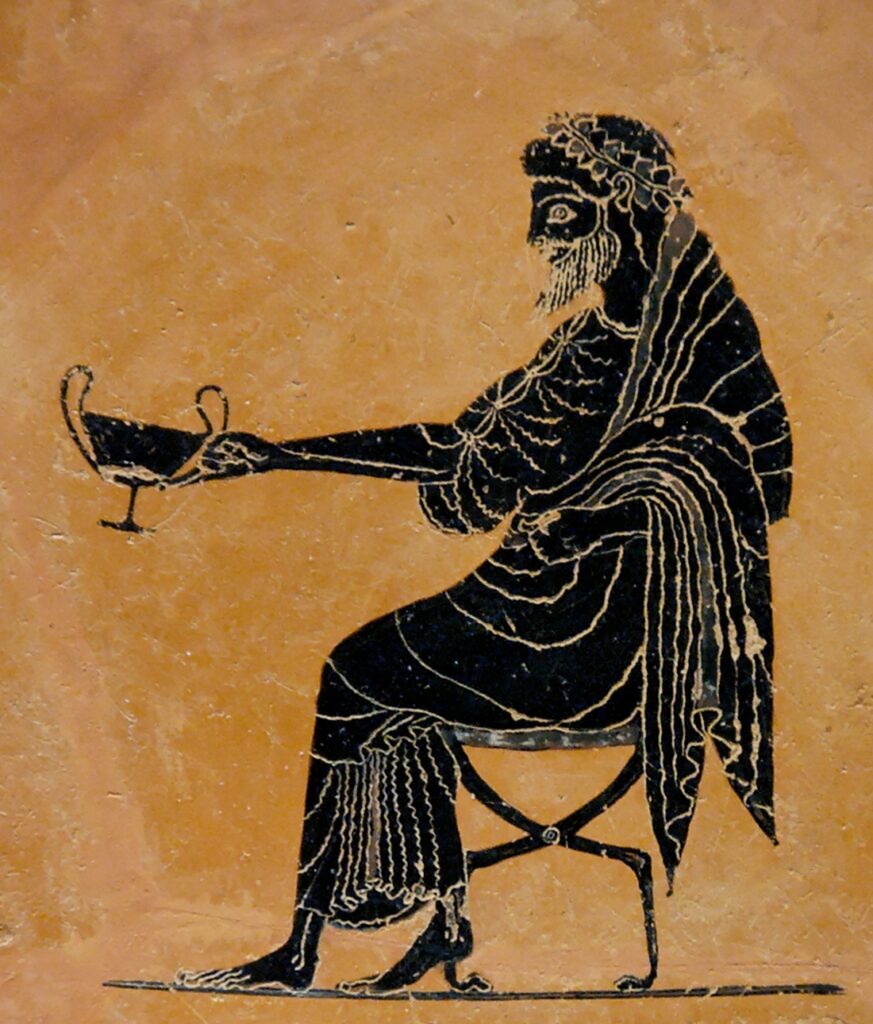
Dionysus in Ancient Greek Mythology
Dionysus was often portrayed as a god of revelry and ecstasy, and was associated with the wild and frenzied aspects of life. He was also considered the patron of drama, and was said to have invented the theater. In Greek tragedy, he was often depicted as a god who could bring about both joy and madness, and was considered both a bringer of life and a bringer of death.
In addition to his role as a god of revelry, Dionysus was also considered a god of fertility and was associated with the growth of crops and the cycle of life. He was worshipped during the spring and summer months, when the earth was coming back to life, and was seen as a symbol of renewal and rebirth. As such, he was considered to farmers and farming in ancient Greece.
There were several stories of him in ancient Greek mythology. One of the most famous of these stories is the tale of his birth and childhood. His mother, Semele, was a mortal who was impregnated by Zeus. When Hera, Zeus’ wife, found out about the affair, she tricked Semele into asking Zeus to reveal his true form, which resulted in her death. Zeus saved the unborn Dionysus by sewing him into his thigh until he was ready to be born.
Dionysus was also known for his role in the myth of the Titans, in which he helped the Olympian gods defeat the Titans and secure their rule over the world.
Worship of Dionysus
In addition to his role in myths and legends, Dionysus was also an important figure in the religious beliefs of the ancient Greeks. His cult was widespread in Greece, and he had many shrines and temples dedicated to him. His festivals such as the Dionysia and the Bacchanalia were celebrated with wild and frenzied rituals.
He was worshipped in many different cities throughout Greece, including Athens, Thebes, and Delphi. In Athens, he was worshipped as the patron of drama, and his temple was located near the theater district. In Thebes, he was worshipped as the patron of fertility, and his temple was located in the countryside. In Delphi, he was worshipped as the patron of wine, and his temple was located near the famous oracle.
In addition to his temples, Dionysus was also worshipped through various festivals and rituals, such as the Dionysia, which was held in his honor in many cities throughout Greece. During this festival, people would perform sacrifices and offer gifts to the god, and would engage in wild revelry and dance to honor his presence.
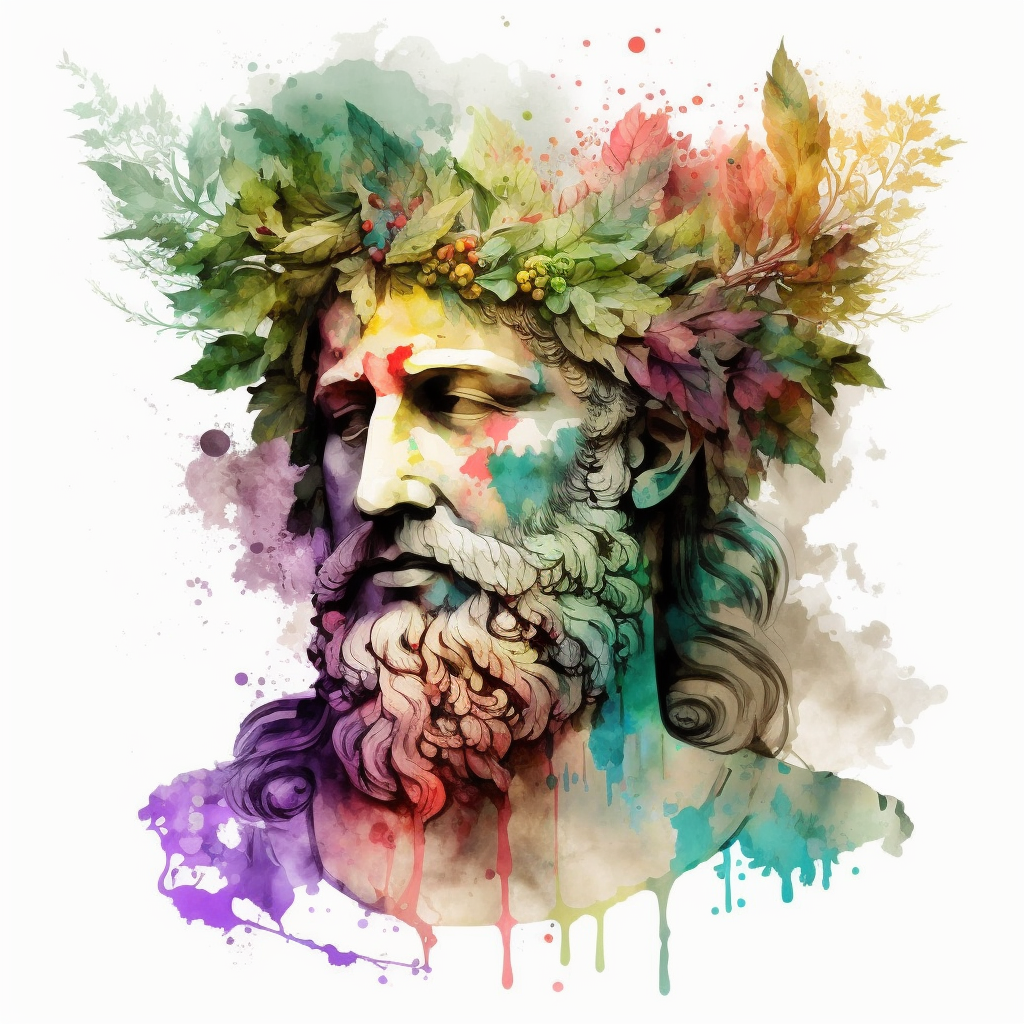
Significance of Dionysus
Dionysus is one of the most well-known gods in Greek mythology, and his legacy has had a lasting impact on Western culture. He is often depicted in works of art, literature, and music, and continues to be a popular figure in modern popular culture. His influence can be seen in the use of the ivy leaf as a symbol of wine and revelry, and in the depiction of Bacchic revelers in works of art and literature.
Dionysus is also remembered for his association with drama, and for his role as the patron of fertility and life. His association with both ecstasy and madness, and his ability to bring life and death, make him a fascinating figure in the pantheon of Greek gods.

